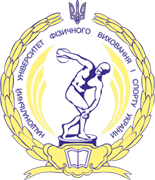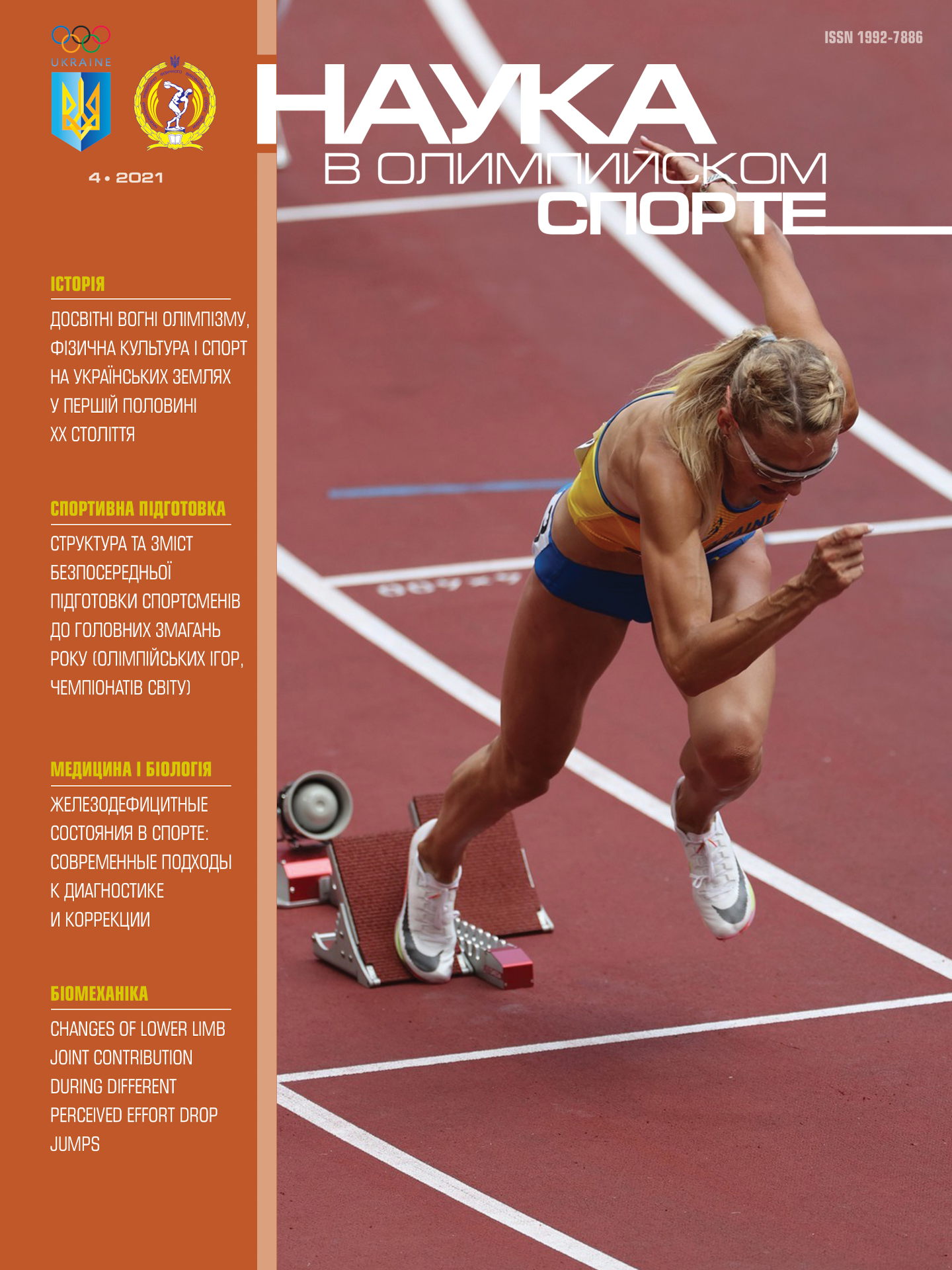doi: 10.32652/olympic2021.1_1
Аналіз спеціальної літератури, в якій відображено різні сторони спадщини та сталого розвитку Олімпійських ігор, свідчить, що науковці порушують переважно питання, пов’язані з розвитком міст і екологічними проблемами. У переважній кількості спеціальної літератури олімпійська спадщина розглядається крізь призму фінансових і матеріальних аспектів. При цьому випадає з поля зору факт, що Олімпійські ігри - це не комерційні проєкти, не програми розвитку міст і країн та вирішення їхніх політичних, економічних і соціальних проблем. Олімпійські ігри - явище глобального масштабу, що має багату історію і яскраву сучасність, свою широку предметну сферу історичного, загальнокультурного і спортивного характеру. Серед різноманітних компонентів олімпійської спадщини, що відіграють вагому роль у сприянні забезпеченню сталого розвитку олімпійського руху та Олімпійських ігор і чинять істотний вплив на різні процеси, які відбуваються в різних сферах як у глобальних масштабах, так і в окремих країнах, можна виділити найрізноманітніші чинники - матеріальні і нематеріальні. У цій статті розглянуто матеріальні чинники, серед яких економічні, матеріальні (зокрема використання об’єктів, побудованих до Олімпійських ігор, після їх завершення), містобудівничо-інфраструктурні чинники олімпійської спадщини та їх роль у подальшому функціонуванні і сталому розвитку міст, які приймали Олімпійські ігри. Висвітлено спортивні чинники та їхній вплив на подальший розвиток спорту в містах, що приймали Олімпійські ігри, і відповідних країнах, технологічні чинники олімпійської спадщини та їх вплив на сталий розвиток життя і діяльності людства й окремих країн, чинники олімпійської спадщини, пов’язані із забезпеченням безпеки учасників і гостей Олімпійських ігор. Приділено увагу чинникам поліпшення здорового способу життя та підвищення рухової активності й екологічним, туристичним чинникам олімпійської спадщини та їхній ролі у розвитку туризму в країнах, чиї міста приймали Олімпійські ігри, а також культурним чинникам олімпійської спадщини та їх впливу на взаєморозуміння і спілкування між народами різних країн.
Література
1. Булатова, М, Платонов, В. Олимпизм и олимпийское образование: история, современность, будущее. Наука в олимпийском спорте. 2019; 3, с. 52-75.
2. Булатова, ММ, Бубка, СН, Платонов, ВМ. Олімпійський рух: історія і сучасність: у 2 кн. К., 2021. Кн. 2. C. 366-401.
3. Бутовский, АД. Афины весной 1896 г. В кн.: Русское образование, 1-е изд. Москва, Т. 42, Декабрь. 1896; с. 767-797.
4. Гудкова, НК. Антропогенные преобразования Имеритинской низменности: экологические проблемы и риски. Сборник научных трудов СНИЦ РАН. 2013. С. 122-126.
5. Гудкова, НК. Олимпийский объект в Сочи: экологические аспекты. Архитектура и строительство, 2015. 2.
6. Кубертен, П. де. Олимпийские мемуары. Киев: Олимпийская литература, 1997. 426 с.
7. Новиков, К. Дело о финансовых олимпийских рекордах. Журнал «Коммерсанть Деньги», 2014. 3. с. 43. https://kommersant.ru/money/82282.
8. Платонов, ВН. Система подготовки спортсменов в олимпийском спорте. Общая теория и ее практические приложения: учебник [для тренеров]: в 2 кн. Киев: Олимпийская литература, Кн. 2., 2015. 752 с.
9. Azzali, S. The legacies of Sochi 2014 Winter Olympics: An evaluation of the Adler Olympic Park. Urban Research & Practice, 2016. 3(81), 1-21. https://doi.org/10.1080/17535069.2016.1216586.
10. Carter, R. V., & Lorenc, T. A qualitative study into the development of a physical activity legacy from the London 2012 Olympic Games. Health promotion international, 2015. 30(3), 793-802. https://doi.org/10.1093/heapro/dat066.
11. Cashman, R. Sydney Olympic Park 2000-2010: History and legacy. Sydney: Walla Walla Press. 2011.
Chalkley, B., & Essex, S. Urban development through hosting international events: A history of the Olympic Games. Planning Perspectives, 1999. 14(4), 369-394. https://doi.org/10.1080/026654399364184.
12. Chappelet, J. L. The Legacy of the Olympic Winter Games: An overview. In M. de Moragas, Ch. Kennett, & N. Puig (Eds.), The Legacy of the Olympic Games 1984-2000: International Symposium Lausanne, 14th, 15th and 16th November 2002 (pp. 54- 66). Lausanne: International Olympic Committee 2003.
13. Daothong, J., & Stubbs, D. London 2012 legacy: Creating a more sustainable future for London and beyond. Proceedings of the Institution of Civil Engineers - Civil Engineering, 2014. 167(6), 3-12. https://doi.org/10.1680/cien.14.00006.
14. Davidson, M., & McNeill, D. The redevelopment of Olympic Sites: Examining the legacy of Sydney Olympic Park. Urban Studies, 2012. 49(8), 1625-1641. https://doi.org/10.1177/0042098011417022
15. Epilogue: The legacy of the Mexico City Olympics. Int. J History of Sport; 2009. 26(6), 866-880. https://doi.org/10.1080/09523360902739405.
16. Finding, J.E., & Pelle, K.D. Second Olympic Winter Games. Encyclopedia of the Modern Olympic Movement. Greenwood Publishing Group, 2004. 289-296.
17. French, S.P., & Disher, M.E. Atlanta and the Olympics: A one-year retrospective. Journal of the American Planning Association, 1997. 63(3), 379-392. https://doi.org/10.1080/01944369708975930
18. Georgiadis, K., & Theodorikakos, P. The Olympic Games of Athens: 10 years later. Sport in Society, 2015. 19(6), 817-827. https://doi.org/10.1080/09548963.2014.862001
19. Gillman S. Day of reckon in glooms for Olympic bidders [Internet]. Planning, 2005; P. 8-9. Available from: http://login.ezproxy1.lib.asu.edu/login?url=http://search.proquest.com/docview/
20. Gratton, C., Preuss, H., & Liu, D. Economic legacy to cities from hosting mega sport events: a case study of Beijing 2008. In R. Holt & D. Ruta (Eds.), Routledge Handbook of Sport and Legacy. Meeting the Challenge of Major Sports Events (pp. 46-58). London: Routledge. 2015.
21. Henry, I. The meta-evaluation of the sports participation impact and legacy of the London 2012 Games: Methodological implications. Journal of Global Sport Management, 2016. 7(1-2), 19-33. https://doi.Org/10.1080/24704067.2016.1177356
22. Hope K. An Olympic city.. again. EUROPE, 1997. 370, 8-10.
23. Kasimati, E. Post-olympic use of the Olympic Venues: The case of Greece. Athens Journal of Sports. 2015. (2), 167-184.
24. Kassens-Noor, E. Transport legacy of the Olympic Games, 1992-2012. Journal of Urban Affairs, 2013. 35(4), 393-416. https://doi.Org/10.1111/j.1467-9906.2012.00626.x
25. Kissoudi, P. Athens’ post-olympic aspirations and the extent of their realization. The International Journal of the History of Sport, 2010. 27(16-18), 2780-2797. https://doi.Org/10.1080/09523367.2010.508269
26. Lindau, L. A., Petzhold, G., Tavares, V. B., & Facchini, D. Mega events and the transformation of Rio de Janeiro into a mass-transit city. Research in Transportation Economics, 2016. 59, 196-203. https://doi.Org/10.1016/j.retrec.2016.07.024
27. Mahtani. K. R., Protheroe, J., Slight, S. P., Demarzo, M. M. P., Blakeman, T., Barton, C. A., Roberts, N. Can the London 2012 Olympics ‘inspire a generation’ to do more physical or sporting activities? An overview of systematic reviews. BMJ open, 2013. 3(1). https://doi.Org/10.1136/bmjopen-2012-002058
28. Malfas, M., Theodoraki, E., & Houlihan, B. Impacts of the Olympic Games as mega-events. Municipal Engineer, 2004. l57(3), 209-220. https://doi.Org/10.1680/muen.157.3.209.49461
29. Minnaert, L. An Olympic legacy for all?: The non-infrastructural outcomes of the Olympic Games for socially excluded groups (Atlanta 1996-Beijing 2008). Tourism Management, 2012. 33(2), 361-370. https://doi.Org/10.1016/j.tourman.2011.04.005
30. Moragas, M., Botella, M. The keys to success. Barcelona: Centre d’Estudis Olimpics i de l’Esport. 1995.
31. Müller M. After Sochi 2014: Costs and impacts of Russia’s Olympic Games. Eurasian Geography and Economics, 2015a. 55(6), 628-655. https://doi.org/10.1080/15387216.2015.1040432
32. Müller, M. (Im-)Mobile policies: Why sustainability went wrong in the 2014 Olympics in Sochi. 2015b.
33. Müller, M., Williamson, M., & Williamson, L. Impact of the 2012 London Olympic and Paralympic Games on physical activity of rheumatology patients. Journal of clinical rheumatology: practical reports on rheumatic & musculoskeletal diseases, 2014. 20(7), 376-378. https://doi.org/10.1097/RHU.0000000000000173
34. Oсada, I., & Greyser, S. After the carnival: Key factors to enhance Olympic Legacy and prevent Olympic Sites from becoming white elephants. Japan Foundation Center for Global Partnership, 2018. 35.
35. Pappous, A. Do the Olympic Games lead to a sustainable increase in grassroots sport participation? A secondary analysis of Athens 2004. In J. Savery & K. Gilbert (Eds.), Sustainability and sport (pp. 81-87). Champaign, III.: Common Ground. 2011.
36. Scheu, A., & Preuss H. The legacy of the Olympic Games from 1896-2016. A systematic review of academic publications. Johannes Gutenberg-University Mainz. Working Paper Series. 2017. 14, 115.
37. Shaw B. Olympic Games: Tale of six cities - an analysis. The Atlanta Journal. 1989; F1.
38. Shimizu, S. Tokyo - bidding for the Olympics and the discrepancies of nationalism. The International Journal of the History of Sport, 2014. 31(6), 601-617. https://doi.org/10.1080/09523367.2013.878501
39. Spilling, O.R. Beyond Intermezzo? On the long-term industrial impacts of mega-events: The 1994. Festival Management & Event Tourism. 1998. (5), 101-122.
40. Thornley, A. The 2012 London Olympics. What legacy? Journal of Policy Research in Tourism, Leisure and Events, 2012. 4(2), 206-210. https://doi.org/10.1080/19407963.2012.662617
41. Toohey, K. The Sydney Olympics: Striving for legacies: Overcoming short-term disappointments and long-term deficiencies. The International Journal of the History of Sport, 2008. 25(14), 1953-1971. https://doi.org/10.1080/09523360802439270
42. Wang, M., Bao, H. X., & Lin, P.-t. Behavioural insights into housing relocation decisions: The effects of the Beijing Olympics. Habitat International, 2015. 47, 20-28. https://doi.Org/10.1016/j.habi- tatint.2015.01.001
43. Warren, L., & West. J. T. Calgary and the legacy of the XV Olympic Winter Games. In Miquel de Moragas, Christopher Kennett, & Nuria Puig (Eds.), The Legacy of the Olympic Games 1984-2000: International Symposium Lausanne, 14th, 15th and 16th November 2002 (pp. 170-178). Lausanne: International Olympic Committee. 2003.
44. Weed, M., Coren, E., Fiore, J., Wellard, I., Chatziefstathiou, D., Mansfield, L., & Dowse, S. The Olympic Games and raising sport participation: A systematic review of evidence and an interrogation of policy for a demonstration effect. European Sport Management Quarterly, 2015. 15(2), 195-226. https://doi.org/10.1080/16184742.2014.998695
45. Zhao, S. X., Ching, J. L., He, Y., & Chan, N. Y. M. Playing games and leveraging on land: unfolding the Beijing Olympics and China’s Mega-event Urbanization Model. Journal of Contemporary China, 2016. 26(105), 465-487. https://doi.org/10.1080/10670564.2016.1245896
46. Ziakas, V., & Boukas, N. Post-event leverage and Olympic legacy: A strategic framework for the development of sport and cultural tourism in post-Olympic Athens. Athens Journal of Sports. 2014. (1), 87-102
47. Zimhalist, A. S. Circus Maximus: The economic gamble behind hosting the Olympics and the World Cup. Washington, DC: Brookings Inst. Press. 2015.
48. Schiller, & Young, C. The mixed legacy of Munich. In R. Holt & D. Ruta (Eds.), Routledge Handbook of Sport and Legacy. Meeting the Challenge of Major Sports Events (pp. 351-362). London: Routledge. 2015.
Надійшла: 17.04.2021













